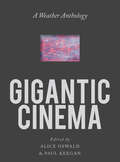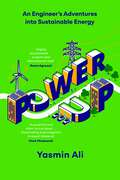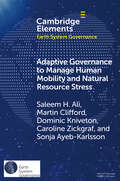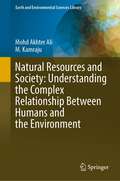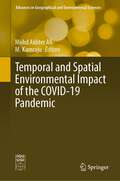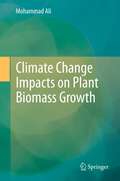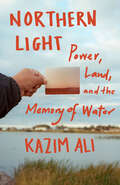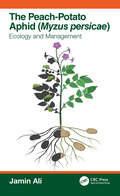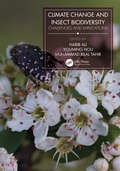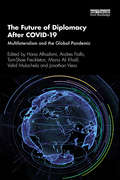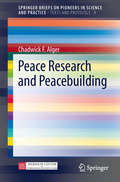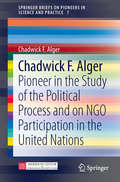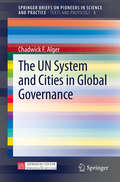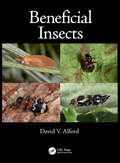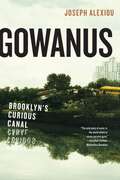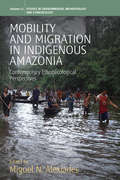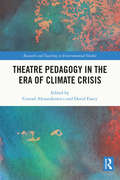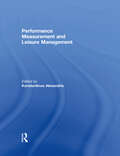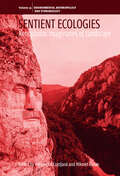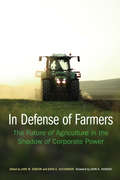- Table View
- List View
Gigantic Cinema: A Weather Anthology
by Alice Oswald & Paul KeeganA luminous, "deliciously playful" (Rishi Dastidar, Guardian) anthology of poems and prose inspired by the weather. In three hundred varied entries, Gigantic Cinema narrates the weather of a single capricious day, from dawn through rain, volcanic ash, nuclear dust, snow, light, fog, noon, eclipse, hurricane, flood, dusk, night, and back to dawn again. It includes reactions both formal and fleeting—weather rhymes, journals and jottings, diaries and letters—to the imaginary and actual drama unfolding above our heads. Ranging from Homer’s winds and Ovid’s flood to Frank O’Hara’s sun, Pliny’s reportage on the eruption of Vesuvius to Elizabeth Bishop’s “Song for a Rainy Season,” Gigantic Cinema offers an expansive collection of writing inspired by the commotion of the elements. Rather than drawing attention to authors and titles, entries appear as a medley of voices; as editors Alice Oswald and Paul Keegan write in their stunning introduction, the excerpts ask to be read “with no hat, no coat, no preconceptions, encountering each voice abruptly, as an exclamation brought on by the weather.” Assembling a chorus of responses (ancient and modern, East and West) to air’s manifold appearances, Gigantic Cinema offers a new perspective on the oldest conversation of all.
Power Up: An Engineer's Adventures into Sustainable Energy
by Yasmin Ali'A stimulating and affable overview of how major feats of engineering can help the world beat the climate crisis'NEW STATESMAN'A powerful and often lyrical book ... Fascinating and insightful in equal measure'MARK MIODOWNIK'Ali's enthusiasm for energy infrastructure electrifies this engaging tour of the people and structures that power our modern world'GAIA VINCE'Highly recommend ... a warm and educational read'ROMA AGRAWAL__________We rarely think about the energy systems that prop up our existence. With hot water, lighting and digital entertainment all available at the flick of a switch, it's easy to underestimate the vast global network that makes these things possible.Growing up in Iraq, Yasmin Ali regularly experienced power cuts - ironic for a country rich in oil and sunshine. Now as an engineer working in energy, Yasmin has a deep appreciation for what these resources mean for our lives. In Power Up she takes us on a journey across the globe to reveal the bigger picture, from solar farms shimmering in the desert to power stations hidden deep in the mountains. We discover where we get energy from, how it is moved and used around the world - and why we need to understand the whole system if we want to transition towards a clean, green future.Power Up is a definitive picture of the intricate world that humanity has built, and a rallying cry to face the challenges of climate change using the power at our fingertips.
Power Up: An Engineer's Adventures into Sustainable Energy
by Yasmin Ali'A stimulating and affable overview of how major feats of engineering can help the world beat the climate crisis'NEW STATESMAN'A powerful and often lyrical book ... Fascinating and insightful in equal measure'MARK MIODOWNIK'Ali's enthusiasm for energy infrastructure electrifies this engaging tour of the people and structures that power our modern world'GAIA VINCE'Highly recommend ... a warm and educational read'ROMA AGRAWAL__________We rarely think about the energy systems that prop up our existence. With hot water, lighting and digital entertainment all available at the flick of a switch, it's easy to underestimate the vast global network that makes these things possible.Growing up in Iraq, Yasmin Ali regularly experienced power cuts - ironic for a country rich in oil and sunshine. Now as an engineer working in energy, Yasmin has a deep appreciation for what these resources mean for our lives. In Power Up she takes us on a journey across the globe to reveal the bigger picture, from solar farms shimmering in the desert to power stations hidden deep in the mountains. We discover where we get energy from, how it is moved and used around the world - and why we need to understand the whole system if we want to transition towards a clean, green future.Power Up is a definitive picture of the intricate world that humanity has built, and a rallying cry to face the challenges of climate change using the power at our fingertips.
Power Up: An Engineer's Adventures into Sustainable Energy
by Yasmin Ali'A stimulating and affable overview of how major feats of engineering can help the world beat the climate crisis'NEW STATESMAN'A powerful and often lyrical book ... Fascinating and insightful in equal measure'MARK MIODOWNIK'Ali's enthusiasm for energy infrastructure electrifies this engaging tour of the people and structures that power our modern world'GAIA VINCE'Highly recommend ... a warm and educational read'ROMA AGRAWAL__________We rarely think about the energy systems that prop up our existence. With hot water, lighting and digital entertainment all available at the flick of a switch, it's easy to underestimate the vast global network that makes these things possible.Growing up in Iraq, Yasmin Ali regularly experienced power cuts - ironic for a country rich in oil and sunshine. Now as an engineer working in energy, Yasmin has a deep appreciation for what these resources mean for our lives. In Power Up she takes us on a journey across the globe to reveal the bigger picture, from solar farms shimmering in the desert to power stations hidden deep in the mountains. We discover where we get energy from, how it is moved and used around the world - and why we need to understand the whole system if we want to transition towards a clean, green future.Power Up is a definitive picture of the intricate world that humanity has built, and a rallying cry to face the challenges of climate change using the power at our fingertips.
Adaptive Governance to Manage Human Mobility and Natural Resource Stress (Elements in Earth System Governance)
by Saleem H. Ali Martin Clifford Dominic Kniveton Caroline Zickgraf Sonja Ayeb-KarlssonConnections between resources and migration operate as a complex adaptive system rather than being premised in linear, causal mechanisms. The systems thinking advocated within this Element increases the inclusion of socio-psychological, financial, demographic, environmental and political dimensions that mediate resource-(im)mobility pathways. The Earth Systems Governance paradigm provides a way to manage global migration flows more effectively, allowing for consideration of networks and interdependencies in addition to its inherent adaptiveness. Resource rushes, hydropower displacement, and climate-induced retreat from coastal areas are all examples of circumstances linking resources and human mobility. Movement can also ameliorate environmental conditions and hence close monitoring of impacts and policies which harness benefits of migration is advocated. Green remittance bonds, and land tenure policies favoring better arable resource usage are key ingredients of a more systems-oriented approach to managing mobility. The Global Compact on Migration offers an opportunity to operationalize such adaptive governance approaches in the Anthropocene.
Natural Resources and Society: Understanding the Complex Relationship Between Humans and the Environment (Earth and Environmental Sciences Library)
by Mohd Akhter Ali M. Kamraju"Natural Resources and Society: Understanding the Complex Relationship Between Humans and the Environment" is a study of the dynamic interplay between humans and the natural world. The book explores the complex relationship between human societies and the environment, examining how human actions can both impact and be influenced by natural resources.The book covers a broad range of topics, including the history of human resource use, the role of natural resources in economic development, and the environmental impacts of resource extraction and consumption. It also considers the social and cultural factors that shape human interactions with the natural world, and the challenges of sustainable resource management. Overall, the book provides a comprehensive overview of the relationship between humans and the environment, emphasizing the importance of understanding this relationship in order to develop more sustainable and equitable societies.
Temporal and Spatial Environmental Impact of the COVID-19 Pandemic (Advances in Geographical and Environmental Sciences)
by Mohd Akhter Ali M. KamrajuThis book identifies, evaluates and reports the impacts of the COVID-19 pandemic on the physical, biological and socioeconomic environment, using the science and technology of geoinformatics. It encourages the environmental considerations in the future city and policy planning and decision-making. For example, according to the World Health Organization, 80% of people living in cities are exposed to polluted air that exceeds healthy levels. City planners have applied the developing concepts of sustainability to modern debates over how cities and regions should be reviewed, regenerated and reformed since the introduction of the concept in developmental science. During the COVID-19 pandemic, a remarkable drop in air pollution has been observed in India and other countries, which has accelerated the shift to green and sustainable development. Geoinformatics can provide solutions and resources for local, sustainable activities in education, health, sustainable agriculture, resource management and related fields. This book serves researchers in a variety of areas, including hazards, land surveys, remote sensing, cartography, geophysics, geology, natural resources, environment and geography.
Climate Change Impacts on Plant Biomass Growth
by Mohammad AliThis book offers a methodical explanation of our biomass-driven ecosystem, the undeniable uncertainties posed by the response of vegetation to changes in environmental conditions and the fact that humans everywhere have an interest, even an obligation, to cooperate in a global campaign to combat climate change.
Northern Light: Power, Land, and the Memory of Water
by Kazim AliAuthor is an acclaimed poet with four published collections of poems, her most recent the majorly successful Oceanic; her debut nonfiction book will appeal to the massive audience she's garnered through previous publications as well as her 18K followers on social media We expect strong blurbs from acclaimed writers Kiese Laymon, Ross Gay, and Nicole Chung Cover and interior art contributed by illustrator Fumi Nakamura; interior will be published in full-color, making it a gorgeous package and perfect gift book Audiobook published and distributed in tandem with publication, read by author Book's distinct engagement with joy, nature, science, the environment, memoir, and the experiences of people of color provides opportunities for wider coverage and crossover into larger markets
The Peach Potato Aphid (Myzus persicae): Ecology and Management
by Jamin AliConsidered as economically significant pests with worldwide distribution, aphids feed on hundreds of cultivated and ornamental plants and cause considerable economic loss on a global scale. The peach-potato aphid, Myzus persicae, is one of the most severe model aphid pests and successfully colonizes hundreds of plant species from 40 different families. It is a complex aphid pest known for its high reproductive rate, biotype formation, suppression of plant defenses, and wide range of host plants. This book covers ecological aspects - including life cycle, damage, and host range - which make aphids an economically important pest. A wide range of topics are covered, including ecological aspects of M. persicae; challenges with management approaches; damage; suppression of plant defenses; evolution; the mechanism of resistance against major classes of insecticides; the potential of biological control and natural plant-derived compounds (plant defense elicitors) as an alternative to the use of synthetic chemical insecticides to control M. persicae; and integrated pest management for M. persicae. As the peach-potato aphid is a model aphid pest, studying it helps to develop control strategies against the entire group of aphids. Written for professionals, as well as students, teachers, and researchers in the fields of entomology, ecology, and bioscience, this book is an enriching new addition to its field.
Climate Change and Insect Biodiversity: Challenges and Implications
by Habib Ali Youming Hou Muhammad Bilal TahirThis up-to-date reference book discusses the effects of climate change on the biodiversity of insect pests. The changing climate and agricultural intensification practices impact negatively on insect biodiversity. The book explains the significance of insect pests for evaluating climatic impacts on a wide range of ecological systems. It covers the effect of climate change on pollinators and household and agricultural insect pests. It explains how climate-smart agriculture can enhance productivity and food security.FEATURES Reviews the effects of climate change on plant-insect interactions Includes topics such as insect biodiversity informatics and conservation Discusses food security, pest management, and beneficial and social insects Covers topics such as precision agriculture and climate-smart agriculture Provides insights on the relation between agriculture intensification and insect biodiversity This book is meant for scientists, researchers, and students working in the fields of agriculture, entomology, ecology, plant science, environmental biology, and biotechnology.
Silk
by A. R. AlHudaibSilk is the debut poetry book of A.R. AlHudaib. Run through with poems dealing with melancholic feelings of loneliness and growing pains. Moments of the past cemented between a few lines in every poem, Silk is a simple time capsule for teenagers settling into adulthood with the same fragility of a newborn. Conceptual and thematic, the book is written in chronological order and fit with fears and desires of the speaker in each corner of it.
The Future of Diplomacy After COVID-19: Multilateralism and the Global Pandemic
by Hana AlhashimiThis book considers the impact of the COVID-19 pandemic on international diplomacy, and the challenges and opportunities it presents for the future of multilateralism. Global cooperation and solidarity are central to responding to and mitigating the health and socio-economic effects of the COVID-19 pandemic, yet, to many, this was slow to mobilize and lacking in political leadership. This book takes a practical look at the lessons learned from the period spanning the World Health Organization’s first declaration of a public health emergency of international concern in January 2020, to the commemoration of the 75th Anniversary of the United Nations in October 2020. This timespan covers a critical period in which to consider key areas of diplomacy, covering a range of tools of global cooperation: multilateral diplomacy, the rule of law, sustainable development, economics and financing, digital governance, and peace and security. Each chapter in this book introduces readers to the current situation in their respective areas, followed by a constructive consideration of lessons learned from the pandemic’s impact on that field, and key recommendations for the future. The practical focus and future orientation is particularly important as the book injects pragmatism and guidance that will facilitate ‘building back better’ in COVID response plans, while creating space for continued focus on global commitments around sustainable development and the future of the UN. Written by a team of authors who have worked directly in International Public Policy and the establishment of global agendas at the United Nations, this book will be essential reading for professionals and policymakers involved in diplomatic roles, as well as students and scholars interested in the future of international relations, global governance and sustainable development.
Chadwick F. Alger: Peace Research and Peacebuilding (SpringerBriefs on Pioneers in Science and Practice #9)
by Chadwick F AlgerThis is the third volume to commemorate the 90th birthday of the distinguished scholar Chadwick F. Alger to honor his lifetime achievement in international relations, as President of the International Studies Association (1978-1979) and as Secretary General of the International Peace Research Association (1984-1987). After a brief introduction by Chad F. Alger this volume presents six of his key texts on Peace Research and Peacebuilding, covering "The quest for peace: What are we learning?"; "The Emerging Toolchest for Peacebuilders"; "Peace Studies as a Transdisciplinary Project"; "Challenges for Peace Researchers and Peace Builders in the Twenty-First Century: Education and Coordination of a Diversity of Actors in Applying What We Are Learning"; "The escalating peace potential of global governance", "There Are Peacebuilding Tasks for Everybody", and "What Should Be the Foundations of Peace Education?"
Chadwick F. Alger: Pioneer in the Study of the Political Process and on NGO Participation in the United Nations (SpringerBriefs on Pioneers in Science and Practice #7)
by Chadwick F AlgerThis volume honors the lifetime achievements of distinguished scholar Chadwick F. Alger on the occasion of his 90th birthday. Carolyn Stephenson presents Prof. Alger as a Pioneer in the Study of the Political Process and on NGO Participation in the United Nations. Part 1 offers an autobiographical note and a comprehensive bibliography of his academic publications. Part II includes three texts on "The Political Process in the UN," namely "The Researcher in the United Nations: Evolution of a Research Strategy," "Interaction in a Committee of the United Nations General Assembly" and "Interaction and Negotiation in a Committee of the UN GA." In Part III, which focuses on "Civil Society Organizations in the UN System (NGOs)," three chapters deal with "Evolving Roles of NGOs in Member State Decision-making in the UN System," "The Roles of NGOs in the UN System: From Article 71 to a People's Millennium Assembly" and "Strengthening relations between NGOs and the UN system: Towards a research agenda."
The UN System and Cities in Global Governance
by Chadwick F. AlgerThis is the second volume to commemorate the 90th birthday of the distinguished scholar Chadwick F. Alger to honor his lifetime achievement in international relations and as President of the International Studies Association (1978-1979). After a brief introduction by Chad F. Alger this volume presents six of his key texts on The UN System and Cities in Global Governance, focusing on "Cities as arenas for participatory learning in global citizenship"; "The Impact of Cities on International Systems"; "Perceiving, Analysing and Coping With the Local-Global Nexus"; "The World Relations of Cities: Closing the Gap Between Social Science Paradigms and Everyday Human Experience"; "Japanese Municipal International Exchange and Cooperation in the Asia-Pacific: Opportunities and Challenges" and on "Searching for Democratic Potential in Emerging Global Governance: What Are the Implications of Regional and Global Involvements of Local Governments?".
Beneficial Insects
by David AlfordInsects are key components of life on our planet, and their presence is essential for maintaining balanced terrestrial ecosystems. Without insects humans would struggle to survive, and on a world scale food production would be severely compromised. Many plants and animals depend directly or indirectly on insects for their very survival, and this is particularly so in the case of insectivorous birds and other such creatures. The beneficial role of insects is often overlooked or misunderstood, and in farming circles their very presence on crops is often seen to be unwelcome. In reality, however, many insects are genuinely beneficial, as in the case of parasitic and predacious species. The use of chemical pesticides to control crop pests is becoming more tightly regulated and environmentally undesirable, and low-input farming, in which natural enemies of pests are encouraged to survive or increase, is becoming far more prevalent. Accordingly, Integrated Pest Management (IPM) and Integrated Pest Management (ICM) strategies are increasingly being developed, advocated and adopted. <p><p>Features: <li>Highlights information on many groups of insects and mites that act as natural enemies or biological control agents of phytophagous insects and mites, including plant pests. <li>Profusely illustrated with high-quality colour photographs. <li>Focuses mainly on insects and mites as natural enemies of plant pests, including parasitic and predacious species that have been accidentally or deliberately introduced in classical biological control programmes. <li>Reviews the role of phytophagous European insects and mites in controlling or managing European plants that have become invasive weeds in other parts of the world, notably North America, Australia and New Zealand.
Amid Thirsty Vines: Poems
by AlfaThemes of self-discovery, tending the garden of the soul, and nurturing yourself into blossom, Amid Thirsty Vines by Instagram poetry star Alfa is the collection you need to feel the power of the beautiful flowers within you, and to find the love you deserve. This volume belongs in the collection of every modern poetry fan.
Gowanus: Brooklyn's Curious Canal
by Joseph AlexiouFor more than 150 years, Brooklyn's Gowanus Canal has been called a cesspool, an industrial dumping ground, and a blemish on the face of the populous borough--as well as one of the most important waterways in the history of New York harbor. Yet its true origins, man-made character, and importance to the city have been largely forgotten. Now, New York writer and guide Joseph Alexiou explores how the Gowanus creek--a naturally-occurring tidal estuary that served as a conduit for transport and industry during the colonial era--came to play an outsized role in the story of America's greatest city. From the earliest Dutch settlers of New Amsterdam, to nearby Revolutionary War skirmishes, or the opulence of the Gilded Age mansions that sprung up in its wake, historical changes to the Canal and the neighborhood that surround it have functioned as a microcosm of the story of Brooklyn's rapid nineteenth-century growth. Highlighting the biographies of nineteenth-century real estate moguls like Daniel Richards and Edwin C. Litchfield, Alexiou recalls the forgotten movers and shakers that laid the foundation of modern-day Brooklyn. As he details, the pollution, crime, and industry associated with the Gowanus stretch back far earlier than the twentieth century, and helped define the culture and unique character of this celebrated borough. The story of the Gowanus, like Brooklyn itself, is a tale of ambition and neglect, bursts of creative energy, and an inimitable character that has captured the imaginations of city-lovers around the world.
Mobility And Migration In Indigenous Amazonia
by Miguel N. AlexiadesContrary to ingrained academic and public assumptions, wherein indigenous lowland South American societies are viewed as the product of historical emplacement and spatial stasis, there is widespread evidence to suggest that migration and displacement have been the norm, and not the exception. This original and thought-provoking collection of case studies examines some of the ways in which migration, and the concomitant processes of ecological and social change, have shaped and continue to shape human-environment relations in Amazonia. Drawing on a wide range of historical time frames (from pre-conquest times to the present) and ethnographic contexts, different chapters examine the complex and important links between migration and the classification, management, and domestication of plants and landscapes, as well as the incorporation and transformation of environmental knowledge, practices, ideologies and identities.
Theatre Pedagogy in the Era of Climate Crisis (Research and Teaching in Environmental Studies)
by Conrad Alexandrowicz David FancyThis volume explores whether theatre pedagogy can and should be transformed in response to the global climate crisis. Conrad Alexandrowicz and David Fancy present an innovative re-imagining of the ways in which the art of theatre, and the pedagogical apparatus that feeds and supports it, might contribute to global efforts in climate protest and action. Comprised of contributions from a broad range of scholars and practitioners, the volume explores whether an adherence to aesthetic values can be preserved when art is instrumentalized as protest and considers theatre as a tool to be employed by the School Strike for Climate movement. Considering perspectives from areas including performance, directing, production, design, theory and history, this book will prompt vital discussions which could transform curricular design and implementation in the light of the climate crisis. Theatre Pedagogy in the Era of Climate Crisis will be of great interest to students, scholars and practitioners of climate change and theatre and performance studies.
Performance Measurement and Leisure Management
by Konstantinos AlexandrisThe issue of performance measurement in the leisure industry is increasingly important, from both theoretical (academic) and applied (practitioner) perspectives. Managers need accurate indications of how their organisations are performing, to inform their decisions. Policymakers need an evidence base for their decisions regarding public leisure services. Students and researchers in leisure management are increasingly turning their attention to the principles and evidence of performance measurement, as an aid to management decision-making.The chapters in this text each present a different case study of performance measurement. They cover a wide range of sectors in the leisure industry including public recreation centres, theme parks, play facilities, sport organisations, hospitality, and the Olympic Games. The evidence from these cases covers examples from three different continents and five different countries.All the chapters report empirical research and all the cases explore managerial implications. However, results are presented with clearly explained statistical analysis, which can be easily understood by a non-academic audience. The book will be useful for leisure management students, researchers and practitioners. The chapters provide both reviews of the relevant literature and propose new measurement models based on original data.This book was previously published as a special issue of Managing Leisure.
Sentient Ecologies: Xenophobic Imaginaries of Landscape (Environmental Anthropology and Ethnobiology #31)
by Alexandra Coțofană and Hikmet KuranEmploying methodological perspectives from the fields of political geography, environmental studies, anthropology, and their cognate disciplines, this volume explores alternative logics of sentient landscapes as racist, xenophobic, and right-wing. While the field of sentient landscapes has gained critical attention, the literature rarely seems to question the intentionality of sentient landscapes, which are often romanticized as pure, good, and just, and perceived as protectors of those who are powerless, indigenous, and colonized. The book takes a new stance on sentient landscapes with the intention of dispelling the denial of “coevalness” represented by their scholarly romanticization.
Australian Climate Law in Global Context
by Alexander Zahar Jacqueline Peel Lee Godden Alexander Zahar Jacqueline PeelAustralian Climate Law in Global Context is a comprehensive guide to current climate change law in Australia and internationally. It includes discussion of: emission trading schemes and carbon pricing laws, laws on renewable energy, biosequestration, carbon capture and storage and energy efficiency; the trading of emission offsets between developed and developing countries, the new international scheme for the protection of forests (REDD) and the transfer of green finance and technology from developed to developing states, the adaptation to climate change through legal frameworks. It assesses the international climate change regime from a legal perspective, focusing on Australia's unique circumstances and its domestic implementation of climate-related treaties. It considers how the challenge of climate change should be integrated into broader environmental law and management. It is a valuable resource for students in law and environmental science, for current and future legal practitioners and for policy-makers and those in the commercial sector.
In Defense of Farmers: The Future of Agriculture in the Shadow of Corporate Power (Our Sustainable Future)
by Sara Alexander Jane Gibson John K. HansenIndustrial agriculture is generally characterized as either the salvation of a growing, hungry, global population or as socially and environmentally irresponsible. Despite elements of truth in this polarization, it fails to focus on the particular vulnerabilities and potentials of industrial agriculture. Both representations obscure individual farmers, their families, their communities, and the risks they face from unpredictable local, national, and global conditions: fluctuating and often volatile production costs and crop prices; extreme weather exacerbated by climate change; complicated and changing farm policies; new production technologies and practices; water availability; inflation and debt; and rural community decline. Yet the future of industrial agriculture depends fundamentally on farmers’ decisions.In Defense of Farmers illuminates anew the critical role that farmers play in the future of agriculture and examines the social, economic, and environmental vulnerabilities of industrial agriculture, as well as its adaptations and evolution. Contextualizing the conversations about agriculture and rural societies within the disciplines of sociology, geography, economics, and anthropology, this volume addresses specific challenges farmers face in four countries: Bolivia, Brazil, Canada, and the United States. By concentrating on countries with the most sophisticated production technologies capable of producing the largest quantities of grains, soybeans, and animal proteins in the world, this volume focuses attention on the farmers whose labors, decision-making, and risk-taking throw into relief the implications and limitations of our global industrial food system. The case studies here acknowledge the agency of farmers and offer ways forward in the direction of sustainable agriculture.
